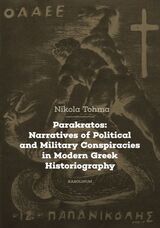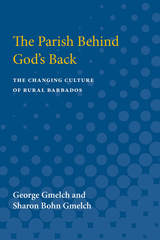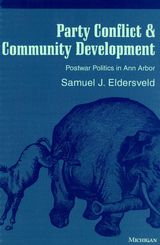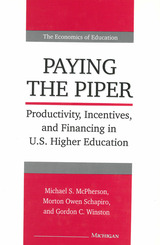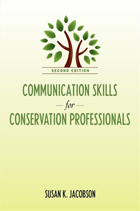

Community and public support are essential to the success of conservation and resource management programs. Often, the level of support received depends on whether or not the goals and importance of the program have been clearly explained to the public, the press, or policymakers. Without good communication, even the best programs are liable to fail.
Communication Skills for Conservation Professionals provides in-depth guidance on achieving conservation goals through better communications. It introduces communication approaches -- marketing and mass media, citizen participation, public information, environmental interpretation, and conservation education activities -- and offers scores of real-world examples and straightforward advice that will help conservationists develop the the skills they need to communicate effectively. Following an introductory chapter that provides an overview of the communication process, the book:
- describes research techniques for gathering background information and targeting audiences
- outlines the steps involved in developing a communications campaign
- explains how to use mass media-from giving interviews to writing news releases and holding press conferences
- provides examples for developing interpretive media for conservation
- explores long-term conservation education strategies
- presents program evaluation techniques to determine the level of success achieved, or to identify steps for improvement
Communication Skills for Conservation Professionals is a much-needed contribution to the environmental literature that will play a vital role in helping scientists, managers, concerned citizens, and students to more effectively communicate their knowledge and concern about the environment, and to achieve greater professional and community success with their environmental campaigns.
READERS
Browse our collection.
PUBLISHERS
See BiblioVault's publisher services.
STUDENT SERVICES
Files for college accessibility offices.
UChicago Accessibility Resources
home | accessibility | search | about | contact us
BiblioVault ® 2001 - 2025
The University of Chicago Press


